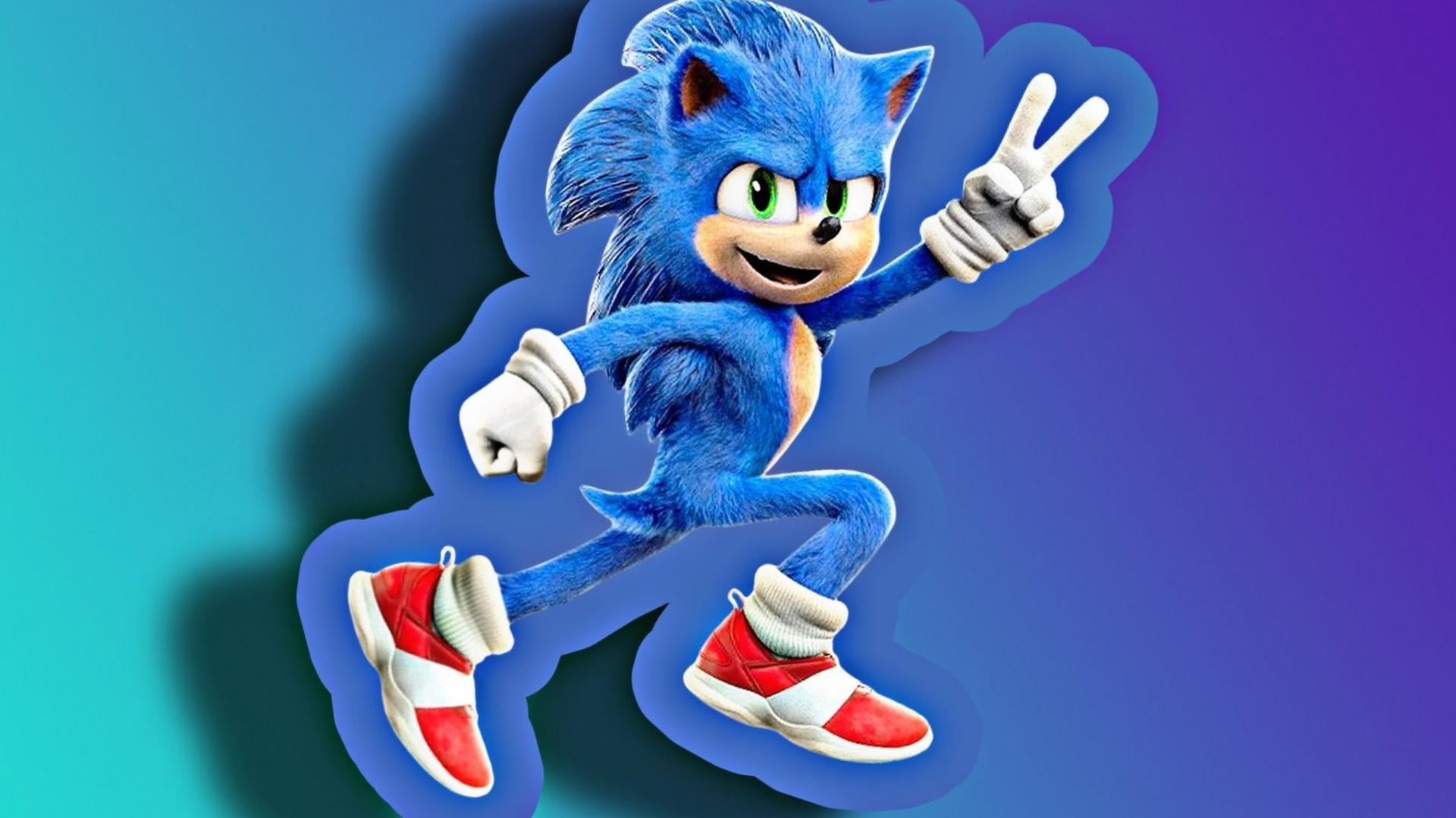Splinter Cell: Audio drama, gaming's next frontier?
- Published
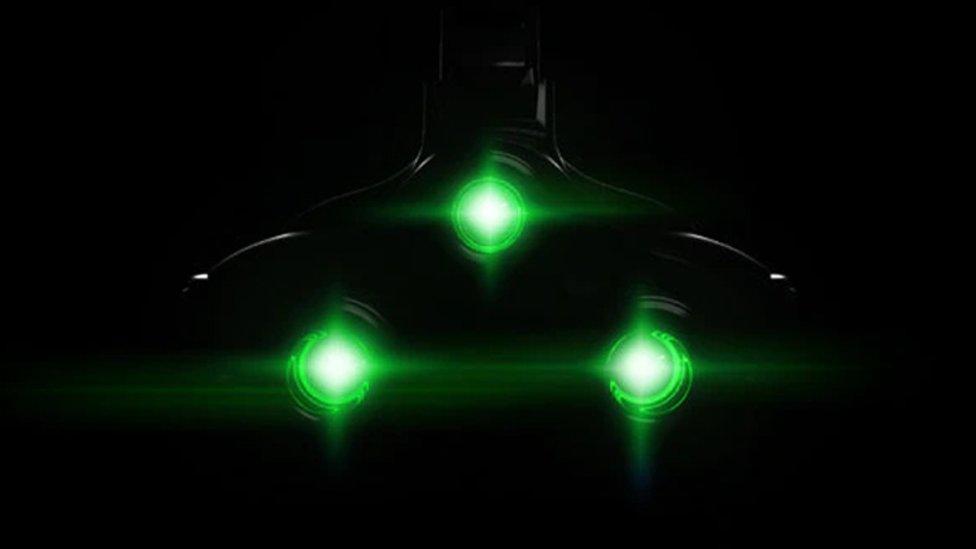
Whether it's World of Warcraft, Uncharted or the upcoming Super Mario movie - games characters have been all over our cinemas in recent years.
The Last of Us is coming to television screens, where shows based on Resident Evil and Halo have found audiences.
Now, BBC Radio 4 is getting in on the act.
Sam Fisher, leading man from the Splinter Cell game series, can call the radio station home, thanks to a first-of-its-kind adaptation that producers say no-one had thought possible.
Radio 1 film critic Ali Plumb says that with so much competition for audiences these days it's no surprise that commissioners are giving the green-light to projects with a "built-in audience".
He argues that we live in a world that is dominated by content: "From podcasts to music, TV, movies, games and audiobooks - frankly its tricky for anyone to cut through the noise.
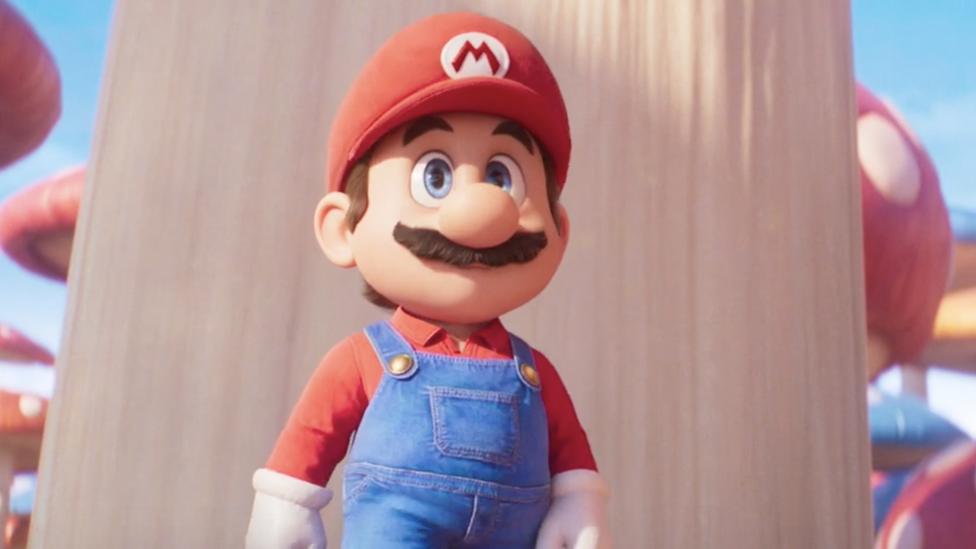
Next year sees Super Mario return to the silver screen
"The art of finding intellectual property, using the built-in fan base of that property and engaging with them in something you want to say about the world is the trick that many creative people are trying to do."
Splinter Cell: Firewall is an eight part dramatisation of a novel based on the famous video game franchise. Sam Fisher, the series' main protagonist, is a covert special agent who excels at sneaking around military bases at night, silently killing terrorist guards and generally saving the world.
Bringing the gaming revolution to audio drama makes perfect sense to actor Andonis Anthony, who plays Sam in the Radio 4 drama, which is also available on BBC Sounds. He argues that with more people turning to "non-music audio", it's a good time for BBC radio to tell stories that offer a "cinematic experience".
"Given the rise in podcasts, and audiobooks being so popular - more and more people are getting used to listening to audio as a story experience. Everyone's going out and about with their air pods on these days and listening in a different way to before."
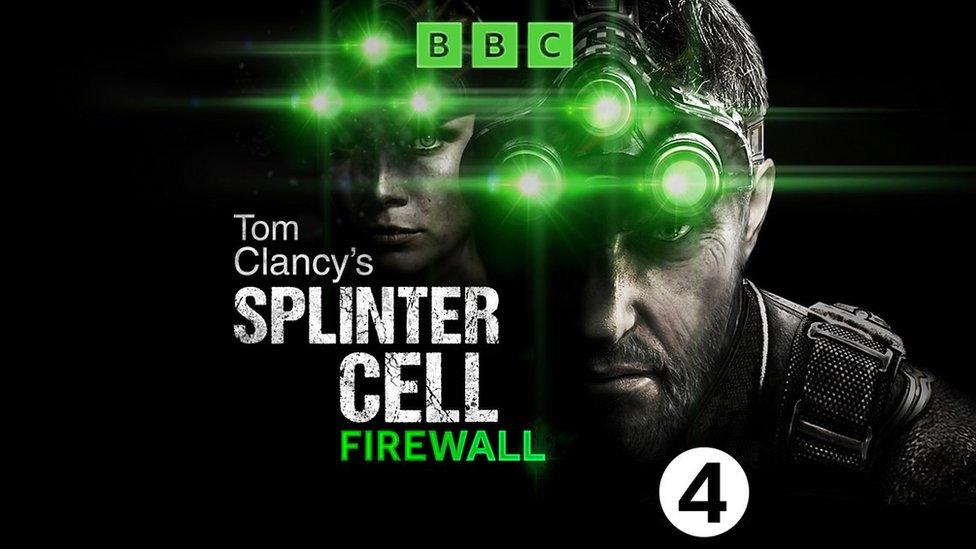
Sam Fisher was first playable on games consoles back in 2002
A paramilitary secret agent is a bit of a change for Anthony who's perhaps better known to Radio 4 listeners as Russ Jones, an art gallery curator living in Ambridge. "It's the polar opposite of what I'm doing in the Archers," he laughs.
Other platforms have adapted video games into audio dramas recently, with stories from franchises like Assassin's Creed and Bioshock being available to listen to, but this is the first time the BBC has got involved.
For a few years now the the organisation has been trying to appeal to new and younger audiences - on television, online and radio.
Sebastian Baczkiewicz, who adapted the Firewall story for Radio 4 and BBC Sounds, hopes that just because this is a story based on a gaming franchise, it won't be pigeonholed as something for younger listeners only: "Trying to reach new audiences is always part of what we do and hopefully this will find an audience.
"But I don't know if they'll be younger. People in their 50s, 60s and 70s play - gaming is a massive global phenomenon."
Video games are inherently a visual medium - which is why high-profile crossovers have focused in the main on film and television, and Baczkiewicz admits the adaptation was "an extraordinary challenge", but one he was excited about.
"The genius of this is that no-one actually thought it was possible, but I always think of anything in radio in a very visual way. I'm not sitting here thinking how it will sound, but rather what does it look like, what's happening in the scene and what are people doing.
"With access to all the sound effects from the game we were able to bed the drama into the world of the game - and show fans that we're not leaving the game behind, instead we're slap bang in the middle of the action."
While plenty of executives and commissioners have been happy to back movie and television gaming crossovers in recent years, not all of them have been box office successes - and many have been critical failures.
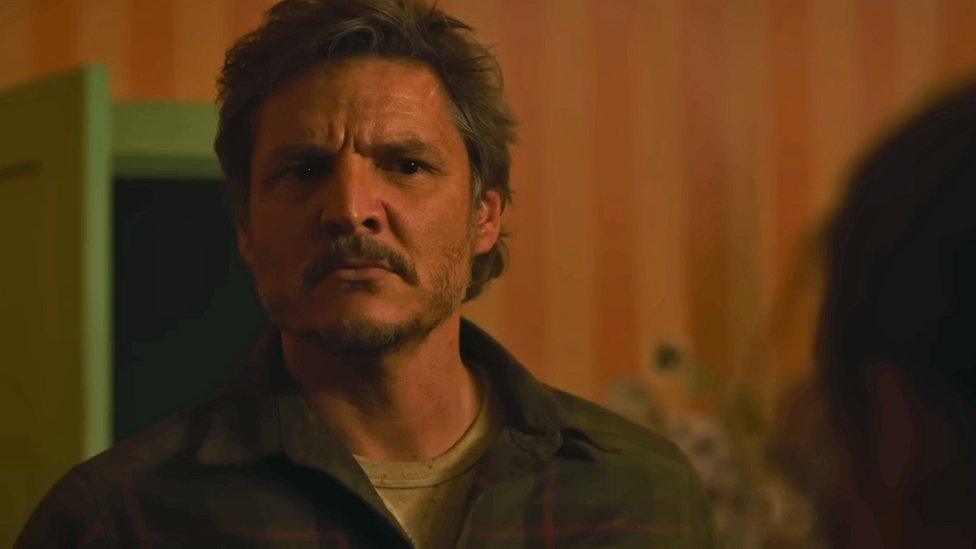
January sees critically acclaimed game franchise The Last of Us come to HBO
Ali Plumb believes there are clear lessons to be learned from these failed experiments: "Embracing what makes the originals so beloved but also doing what makes sense for the new medium - finding this balance is the key to making a success of these crossover projects, whether it's TV, film or audio drama."
He argues that projects aimed at children - like Sonic and Angry Birds - have found the greatest success in doing this: "Maybe because, without being too rude, they don't have to pass such a high critical bar to be successful in their own terms. As long as they're putting smiles on faces, then they're doing their job nicely."
Splinter Cell has a more mature fan base than those examples - so the job of making a success of this adaptation may be a little harder.
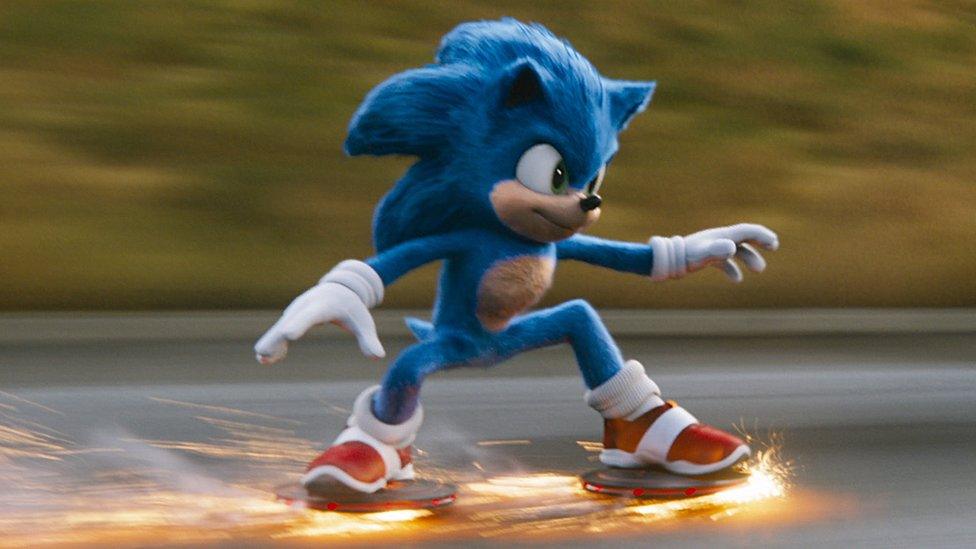
The Sonic movie adaptations have done well at the the box office
The team behind it say paying respect to the source material is the key, Andonis Anthony explaining it was a major focus for everybody involved, "from the production team, from writers to the performers, all of the cast".
Sebastian Baczkiewicz added: "There's no winking as it were, there's no 'this is all a bit crazy, isn't it?!' This is the world we are in and we are being true to it. We were really keen to make sure we maintained that throughout.
"The audiences of these games are passionate and why wouldn't you treat them and the story with respect."
Splinter Cell: Firewall is broadcast on Fridays on Radio 4 at 14:15 GMT. All episodes are on BBC Sounds now.
For more gaming content - go to Press X to Continue - the BBC Sounds gaming Podcast.

Related topics
- Published16 December 2021

- Published8 October 2022
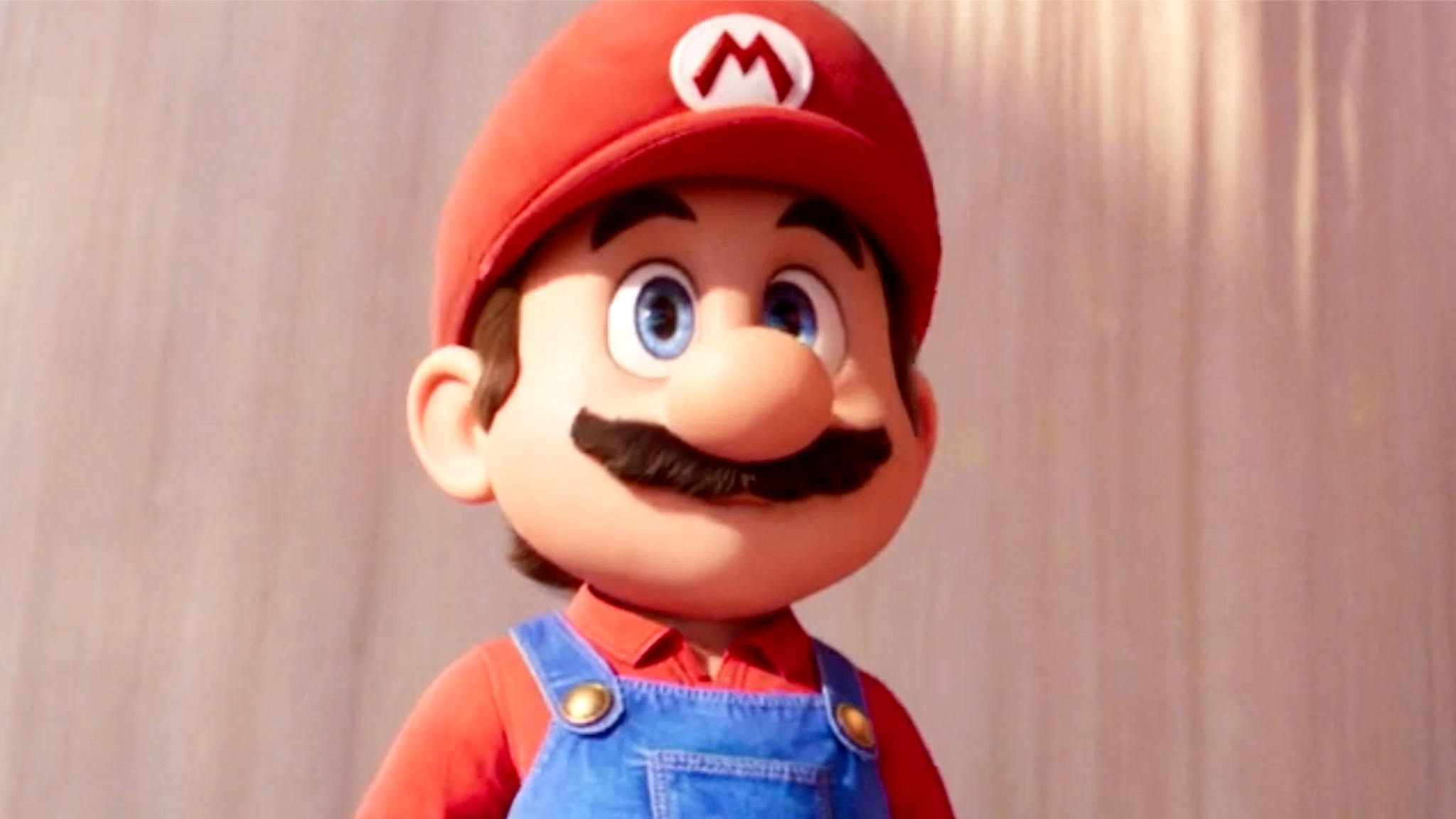
- Published14 March 2021
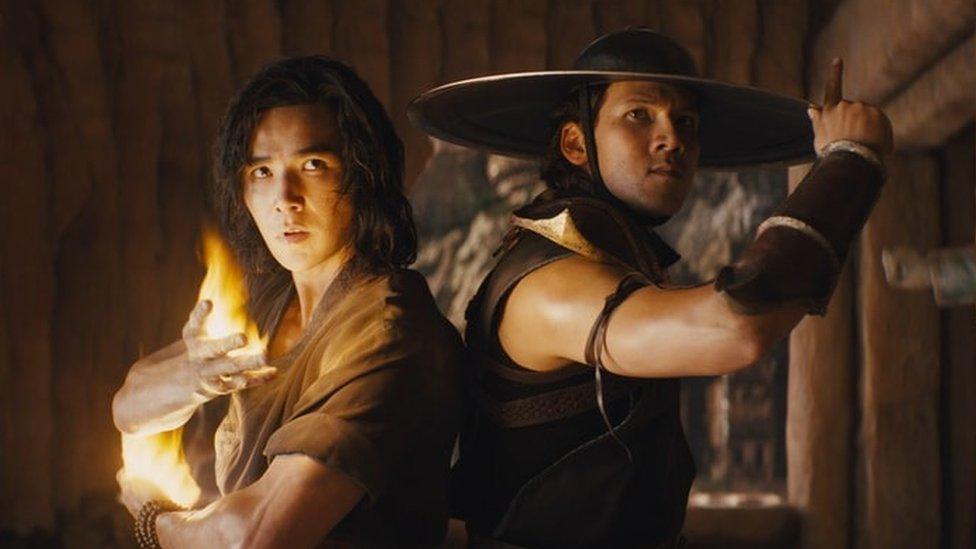
- Published30 May 2020
